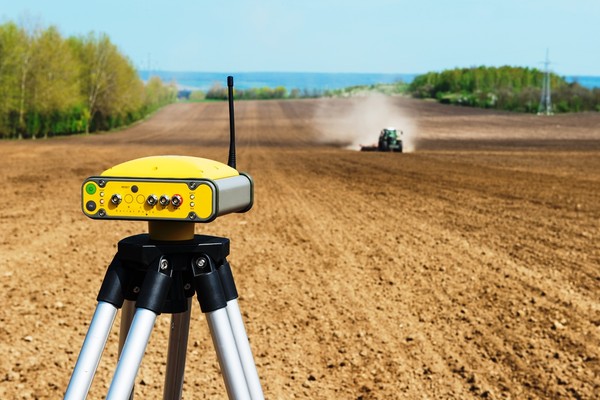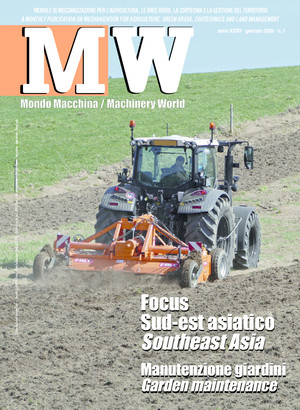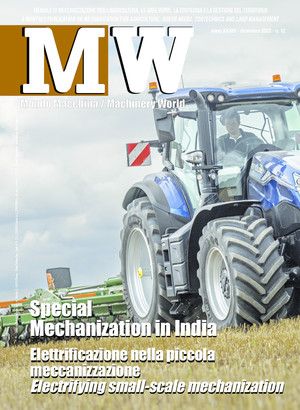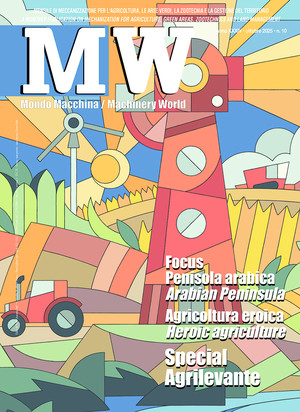
European research: FederUnacoma partner of the Databio project
The project, promoted by a partnership that officially includes FederUnacoma, focuses on the collection of data from organic sources. A second project, called IoF 2020, also funded under the Horizon 2020 tenders, works on the "Farm of the Future", trying to transfer "Internet of things" technology to farmsby
With a budget of around 16 million euros, the Databio project is one of the so-called Large Scale Pilot Projects, funded by the European Commission under the Horizon 2020 research funding programme. An initiative designed to stimulate scientific research and experimental application research, acquisition, processing, analysis and use of data from organic sources within 36 months. With a set of activities dedicated specifically to agricultural mechanization, research into agricultural data and machinery is one of the cornerstones of the project, of which FederUnacoma is a partner. “The idea - explains Alessio Bolognesi, an ICT expert of the federation - is that we can propose experimental activities and involve our associates in evaluating which technologies can be adapted and be best integrated to enable machines to efficiently obtain and communicate the data of interest to the user. One of the critical aspects for machine manufacturers is to be able to add more sophisticated technologies without pricing themselves out of the market.” The project covers various fields of data processing from organic source data, including, for example, forest or aquatic sources. It is coordinated by Intrasoft Belgium, a company of the Greek ICT group with a solid experience in managing EU R&D projects, made up of 48 partners, including 8 Italian ones. Together with FederUnacoma, CRA ING (Agriculture Research Council and Agricultural Economy Analysis) is among the organizations involved in the pilot projects dedicated to machinery, which in the future will also directly involve farms of various sizes. “The approach - says Karel Charvat from Lesprojekt, a Czech company specializing in satellite technologies and vehicle tracking systems - is to find the most efficient way to handle growing and often diverse masses of data. We would like to combine GPS data with CAN-bus terminals. That is a starting point, but we must also take into account the priorities of machine manufacturers. For this purpose, the partnership with Federunacoma is fundamental.” Pilot activities on precision agriculture include two areas of implementation. On the one hand, we have open field crops, especially cereals and biomass, and on the other we have olive groves, orchards, vineyards and gardens, where the problems related to the intersection between machine position, sensors, communications and data management are far from trivial. “For Italian mechanization, the Databio project - explains Marco Pezzini, Secretary for European Affairs - is a great opportunity to consolidate the collaboration with research organizations and to finance some experimental activities, which will be decided in the coming months in collaboration with the other partners. Rather than for immediate marketing, this is an important initiative because it allows us to anticipate the trends of big data and the technologies that the machines will use to handle it in the years to come.” The project officially started at the beginning of the year and is currently proceeding in the definition of the early experimental phases. While Databio focuses on data, another project called IoF 2020 (Internet of Farms 2020), funded by the same Horizon 2020 tender and coordinated by the Dutch University of Wageningen, deals with the “Farm of the Future”, trying to translate and adapt the “internet of things” technologies to the farm’s environment. “It is a project that we follow closely - Pezzini explains - through CEMA, the European federation that we are members of, which plays an important role in the activities related to the interface between related objects and machines.”
Both projects should be completed in late 2019. Meanwhile, the Horizon programme’s focus on precision agriculture should grow and materialize in the definition of new tenders over the three-year period 2018-2020, whose publication is expected in the fall.








